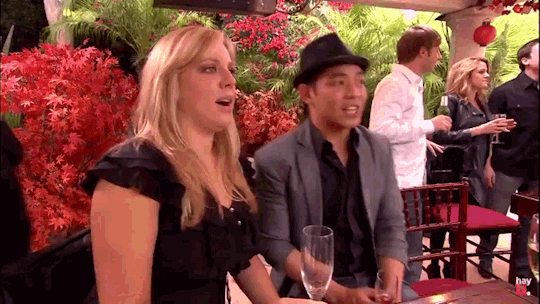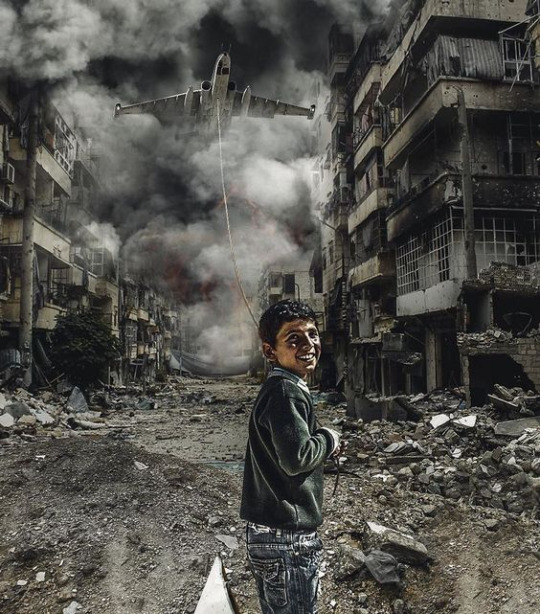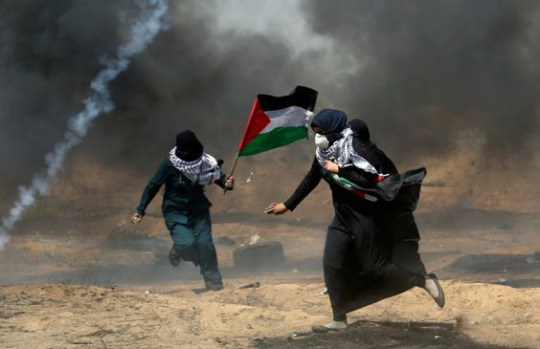#it's such a brutal and terrifying scene too George was sick for that one
Text
When a character named Biter actually bites someone

#George for mulitple books: this is a demon an absolute creature he is evil and feral and vile#me when he bites a piece of Brienne's face off: Oh my god!! WTF!! Where is this coming from?!?!?!?#it's such a brutal and terrifying scene too George was sick for that one#Brienne really can't catch a break ooooh 😭#brienne of tarth
33 notes
·
View notes
Text
Can Palestinian Lives Matter?

“Palestinians don’t exist,” they said. With time this moment would blur, but not fade, mingling with innumerable interactions in which strangers would likewise inform me of my nonexistence. In that moment, though, it was a wholly new experience. I felt the brief flicker of a laugh before the sick sense of outrage landed in my gut. Before I could find the words to respond, the accuser was gone.
How strange, to tell a living, breathing human being, to their face, that they are “unreal.” And what would be the proper defense? How does one reply to a delusion?
Because something happens at the mention of that word Palestinian. In the moment it is uttered.
Palestinians as a people, are visible but rarely seen. We do not “exist” as others do; we have neither a formal country nor any economic or military power to speak of. We have a history and culture, but these are eroded and appropriated more with every passing year. Mostly, we are collectively obscured by what people think they know, what they think we are: threats, troublemakers, terrorists.

This is how we can be in so many headlines and yet die such endless deaths. We die, in part, because that is what the world expects of us. Our name is invoked only in connection to brutality and strife, which are presented as inevitable, our natural state. Reports read like weather reports: The “climate” “heats up” then “boils over” into “another wave of violence.” Our casualties are like the seasons — a crop of dead every few years, usually in Gaza.
All this because we are among the world’s disposable people. What kills us is not only Israeli state violence but the international community’s collective failure to imagine us as human beings. It is the same failure that has allowed so many Black bodies to be murdered in the broad daylight of viral videos, with so little systemic change. As Elizabeth Alexander has written, “Black bodies in pain for public consumption have been an American national spectacle for centuries.” With such a violent collective memory, it’s no wonder white Americans have been so egregiously slow and equivocal in responding to anti-Black violence. For who is more visible in the U.S. than a Black person? Yet who is the most seldom seen?

This is the lethal contradiction that generations of Black intellectuals and activists have worked to dismantle. The “problem of the color line,” as W.E.B. DuBois called it, will only be solved when the U.S., as a whole, grasps the full humanity of Black people, who have been systematically dehumanized. There can be no going forward, in short, until the U.S. internalizes the most basic truth that Black Lives Matter.
In this way, the U.S. and Israel confront a similar moral failing: Years of intentional disenfranchisement, abuse of and theft from a people in the name of another group’s supremacy — in one case, under the banner of whiteness, and in the other, Zionism. Both have gambled on their ability to suppress these peoples’ efforts to resist their oppression, through the means of mass incarceration, state violence, and legal discrimination. And both have seen that even the most brutal crackdowns cannot squelch the human spirit forever.
Black Americans has shown us, again and again, that they will not allow themselves to be made unreal — and this last year, many more people seemed to listen. For Black Americans who routinely face state violence, the murder of George Floyd was tragically unsurprising. Yet this particular death seemed to penetrate the larger American imagination, managing, somehow, to puncture the gloss of indifference with its sheer visceral force, its specificity. Floyd was seen as an individual, a human being, and his name became a movement. “Black Lives Matter” had a resurgence, thanks in part to the sudden recognition by white Americans of a particular Black life, and death.

Palestinians were quick to respond to the George Floyd movement, protesting in solidarity, drawing parallels between their own experiences of mass incarceration, militarized law enforcement, legal discrimination, knees on civilian necks. Floyd’s face decorated stretches of the Israeli barrier wall, alongside murals of Palestinians killed by Israeli police and soldiers, including Iyad Hallaq, an unarmed man with autism, shot on his way home from school. Floyd’s death also prompted discussions in the Palestinian and wider Arab communities about their own anti-Blackness. This internationalism is not new: For years, Palestinian activists have looked to the American civil rights movement, the South African struggle against apartheid, and others for inspiration. They have also offered their solidarity and support to movements abroad, including the Standing Rock protests and other efforts for Indigenous rights.

Perhaps something, this time, will be different. With the newfound skepticism of law enforcement and incarceration wrought by the George Floyd movement, many in the “woke” world seem to have found resonance with the scenes of Palestinian civilian protests throughout the territories and Israel, launching marches of their own around the globe. Perhaps, after a year in which the words “decolonization” and “intersectionality” have become memes, in which social media has become a streamlined highway for outrage and mobilization, this “clash” will be recognized at last for what it is: a fight for the Palestinian right to be human.
Such a shift would be a breakthrough: Just as the U.S. will remain haunted until Black lives are fully, truly, and equally valued, there can be no peace in Israel-Palestine until all the lives involved are reckoned with as human. Such a reckoning is understandably terrifying for nations built on the systematic denial of certain humanities, but there is no other way. And if the last year has taught us anything, it is that no odds can outmatch the individual’s need for dignity.

“The myths of self-defense” — Israel’s — “and both sides are becoming more and more penetrable,” Mohammed el-Kurd, whose family is facing forced displacement from their home in Sheikh Jarrah, said in a CNN interview this week. “People are being able to see through these myths and call an occupation for what it is and an aggressor for what it is.”
And perhaps, too, they will begin to see us.
#free palestine#gazaunderattack#palestinian lives matter#savesheikhjarrah#free gaza#save palestine#plm#black lives still matter#palestine#freepalestine
216 notes
·
View notes